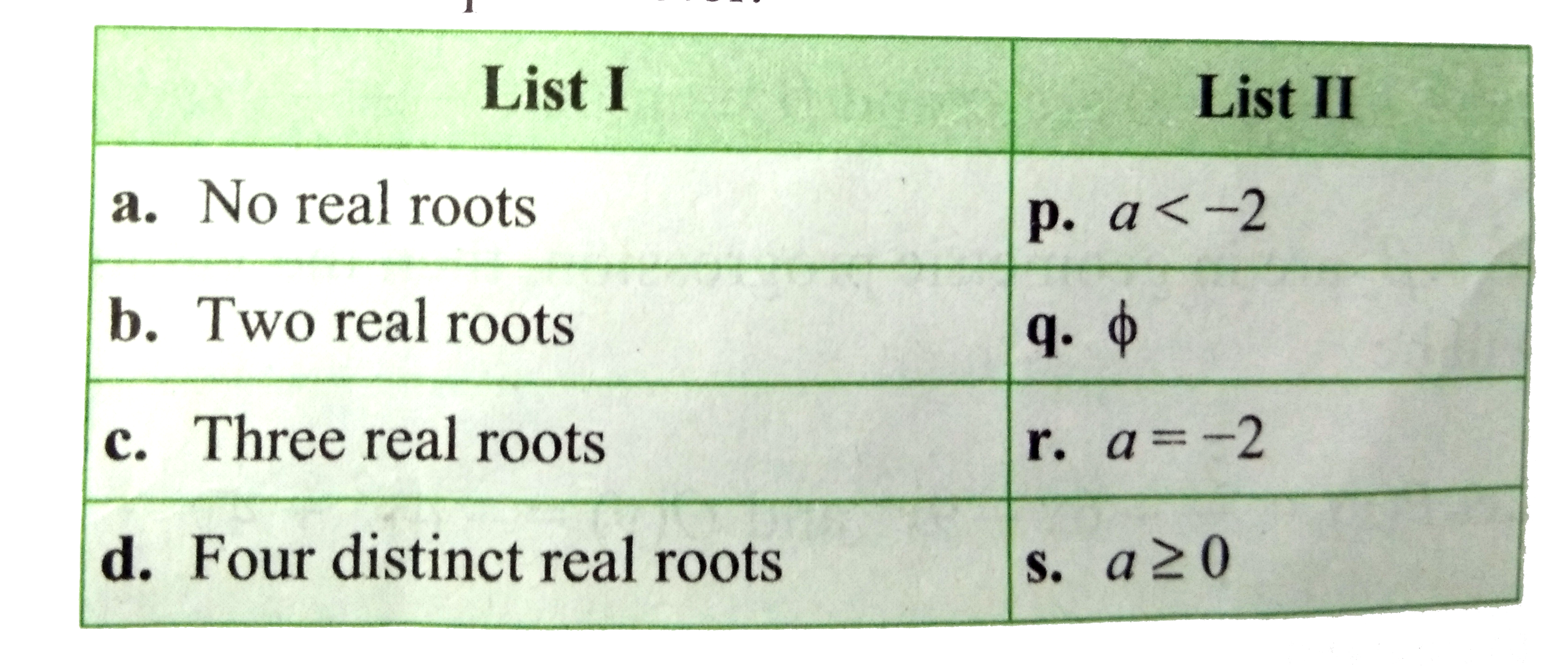If f(x) is a polynomial of degree 4 with rational coefficients
and touches x - axis at (√2,0) , then for the equation
f(x)=0, Solution in Tamil
sum of roots is 4√3
sum of roots is 0
product of roots is - 4
product of roots is 4.
The correct Answer is:2,4,
It is given that f(x) touches x - axis at (√2,0) . So, two roots are
√2,√2.
since coefficients are rational, other roots must be sqrt(2), sqrt(2).
Topper's Solved these Questions
- THEORY OF EQUATIONSBOOK - CENGAGECHAPTER - THEORY OF EQUATIONSEXERCISE - Exercise (Comprehension)
37 Videos
- THEORY OF EQUATIONSBOOK - CENGAGECHAPTER - THEORY OF EQUATIONSEXERCISE - Exercise (Matrix)
6 Videos
- THEORY OF EQUATIONSBOOK - CENGAGECHAPTER - THEORY OF EQUATIONSEXERCISE - Exercise (Single)
89 Videos
- STRAIGHT LINESBOOK - CENGAGECHAPTER - STRAIGHT LINESEXERCISE - JEE Advanced Previous Year
4 Videos
- THREE DIMENSIONAL GEOMETRYBOOK - CENGAGECHAPTER - THREE DIMENSIONAL GEOMETRYEXERCISE - Question Bank
12 Videos
Similar Questions
Consider an unknow polynomial which divided by (x−3) and (x−4) leaves remainder 2 and 1, respectively. Let R(x) be the remainder when this polynomial is divided by (x−3)(x−4).
If equations R(x)=x2+ax+1 has two distint real roots, then exhaustive values of a are.
View SolutionMatch the following for the equation x2+a|x|+1=0 where, a is a parameter.

View SolutionThe value of expression x4−8x3+18x2−8x+2 when x=2+√3
View Solutionabout to only mathematics
View SolutionThe equation of the plane which has the property that the point Q(5,4,5) is the reflection of point P(1,2,3) through that plane, is ax+by+cz=d where a,b,c,d∈N. Find the least value of (a+b+c+d).
View SolutionThe f(x) is a third degree polynomial such that f(0)=4 and Lt_(x rarr1)(f(x))/((x-1)^(2))=1 then f(x) is not divisible be
View Solutionf(x) is polynomial of degree 4 with real coefficients such that f(x)=0 satisfied by x=1, 2, 3 only then f'(1)f'(2)f'(3) is equal to -
View SolutionIf f(x) is a polynomial of degree 4 with rational coefficients
and touches x - axis at (√2,0) , then for the equation
f(x)=0,
View SolutionIf f(x) is a polynomial of degree 5 with real coefficients such that f(|x|)=0 has 8 real roots, then f(x)=0 has
View SolutionA polynomial of 6th degree f(x) satisfies f(x)=f(2−x),∀x∈R, if f(x)=0 has 4 distinct and 2 equal roots, then sum of the roots of f(x)=0 is
View SolutionIf f (x) is polynomial of degree two and f(0) =4 f'(0) =3,f''(0) =4,then f(-1) =
View SolutionIf f (x) is a polynomial of degree two and f(0) =4 f'(0) =3,f'' (0) 4 then f(-1) =
View SolutionIf f(x) is a polynomial of degree 2, such that f(0)=3,f'(0)=−7,f''(0)=8∫21f(x)dx=
View SolutionIf f (x)= 0 be a polynomial whose coefficients are all and whose roots are all real, then degree of f (x) can be :
View Solutionf(x) is a polynomial of degree three with rational co - efficients. If its graph touches the x - axis, then
View Solution
